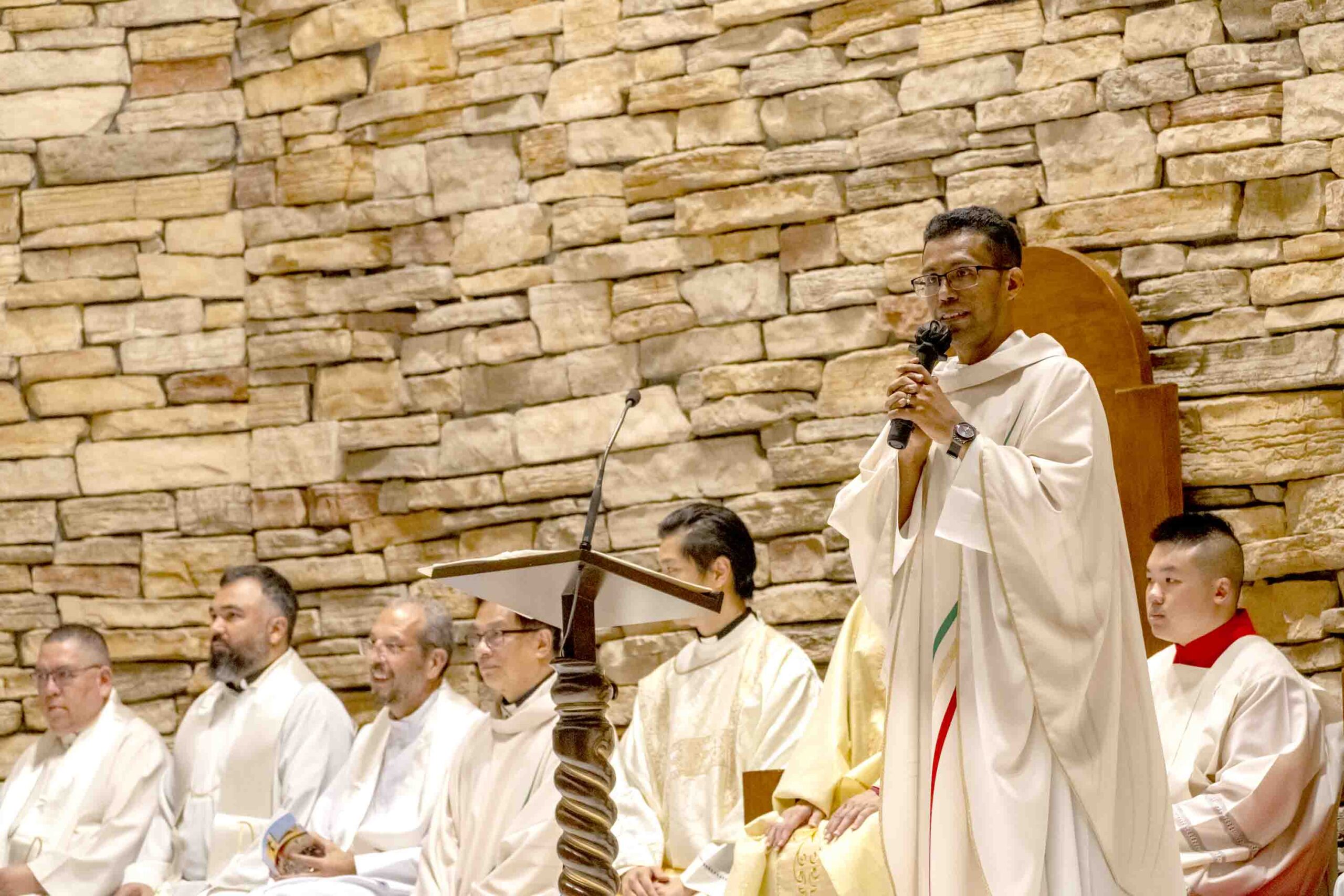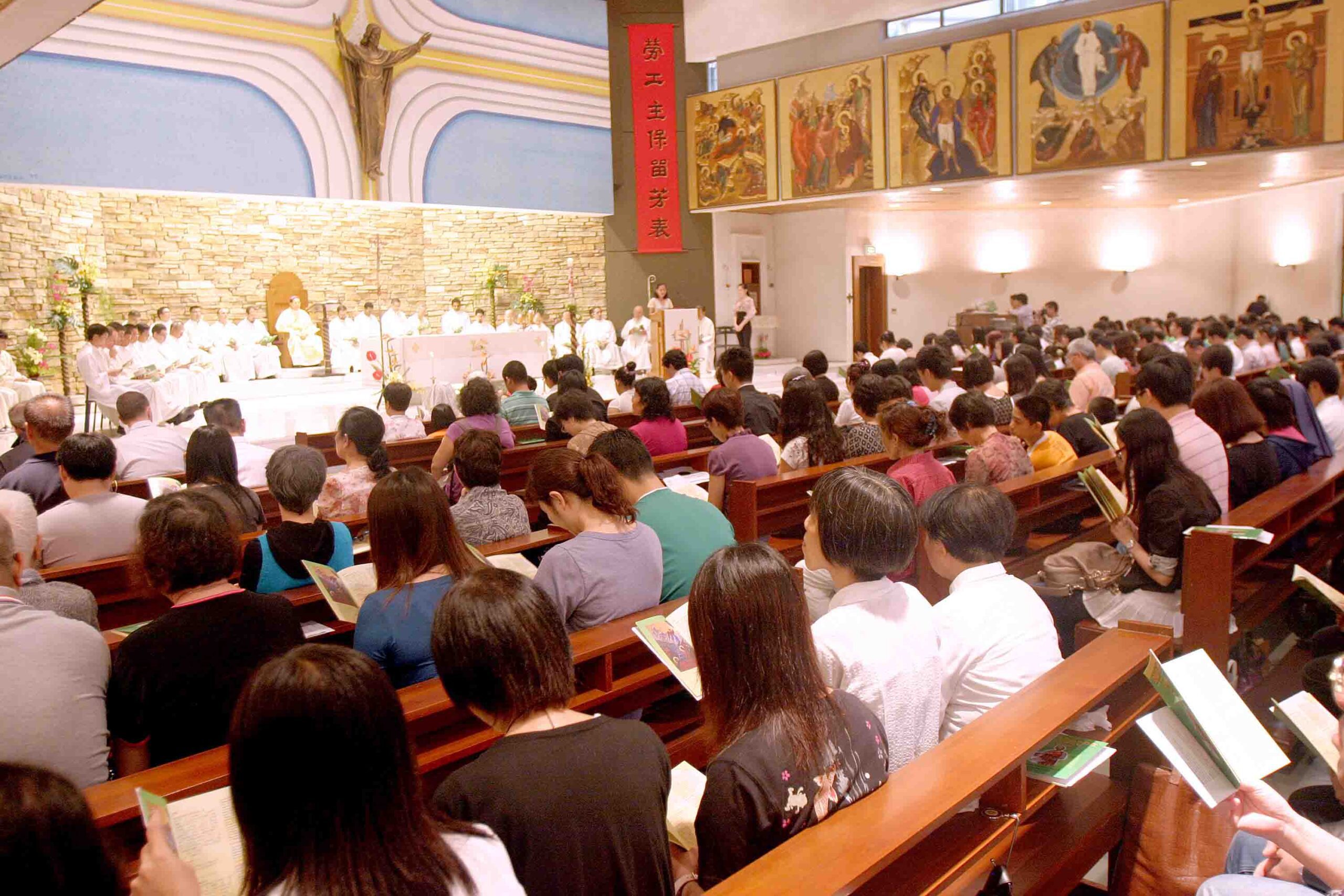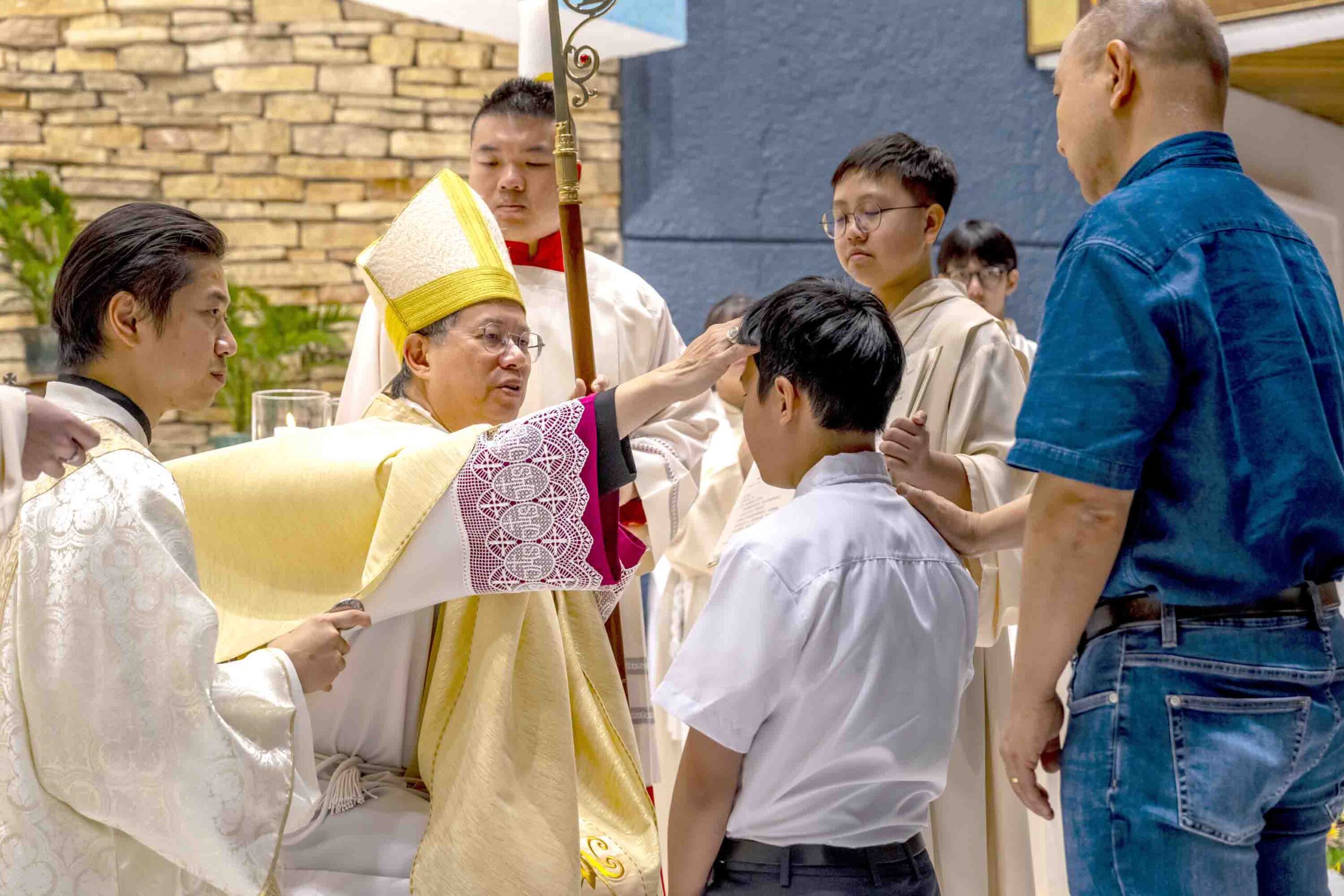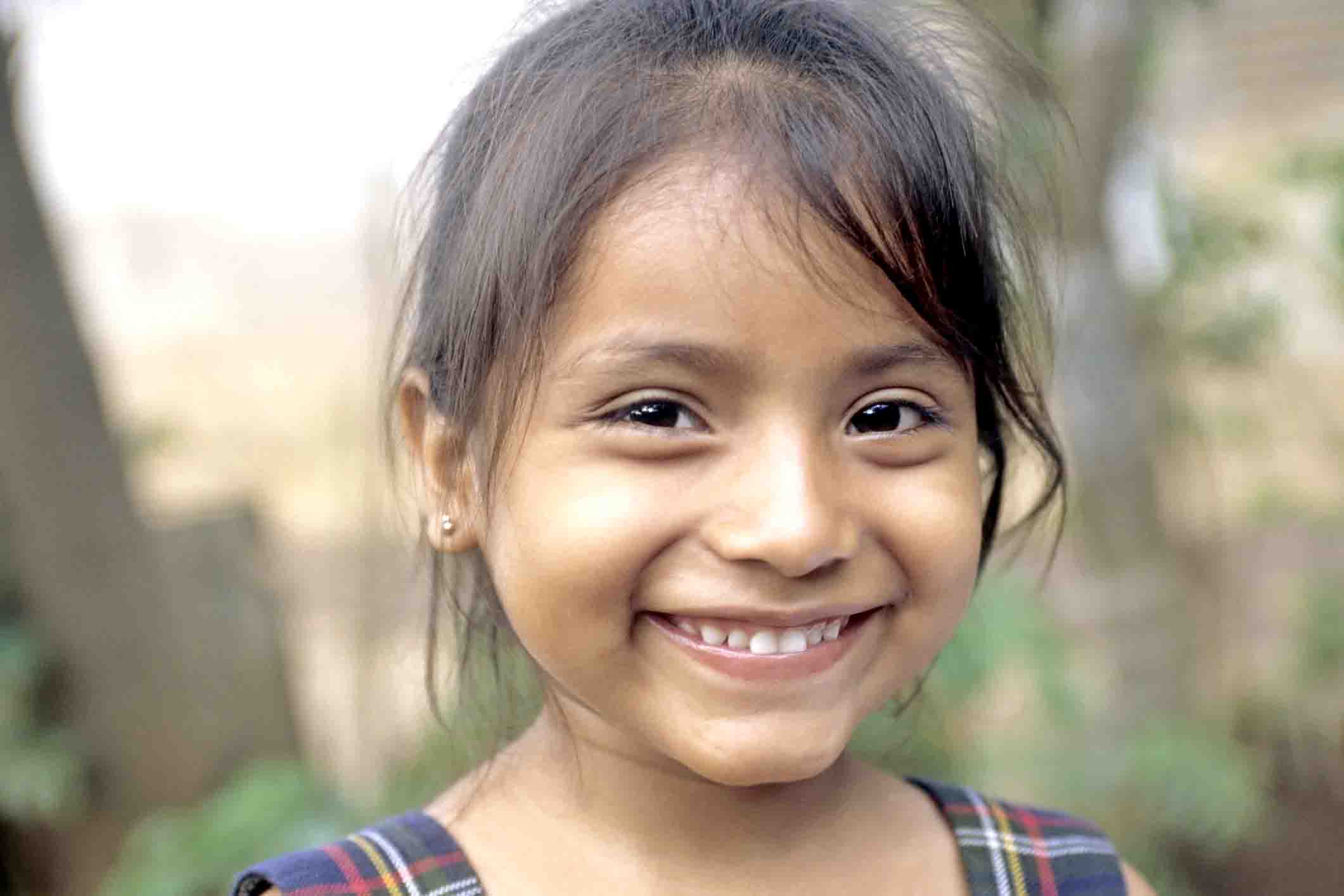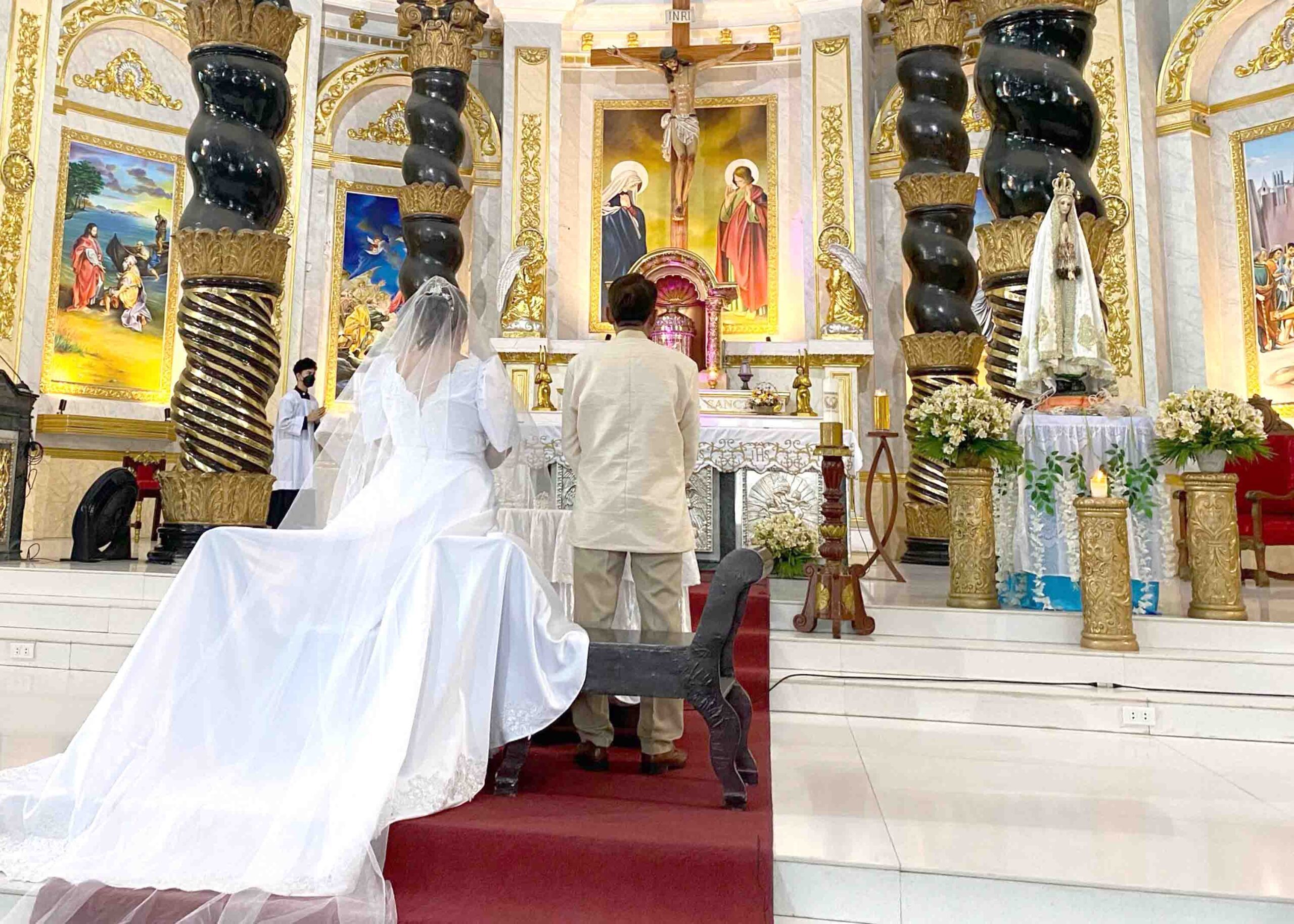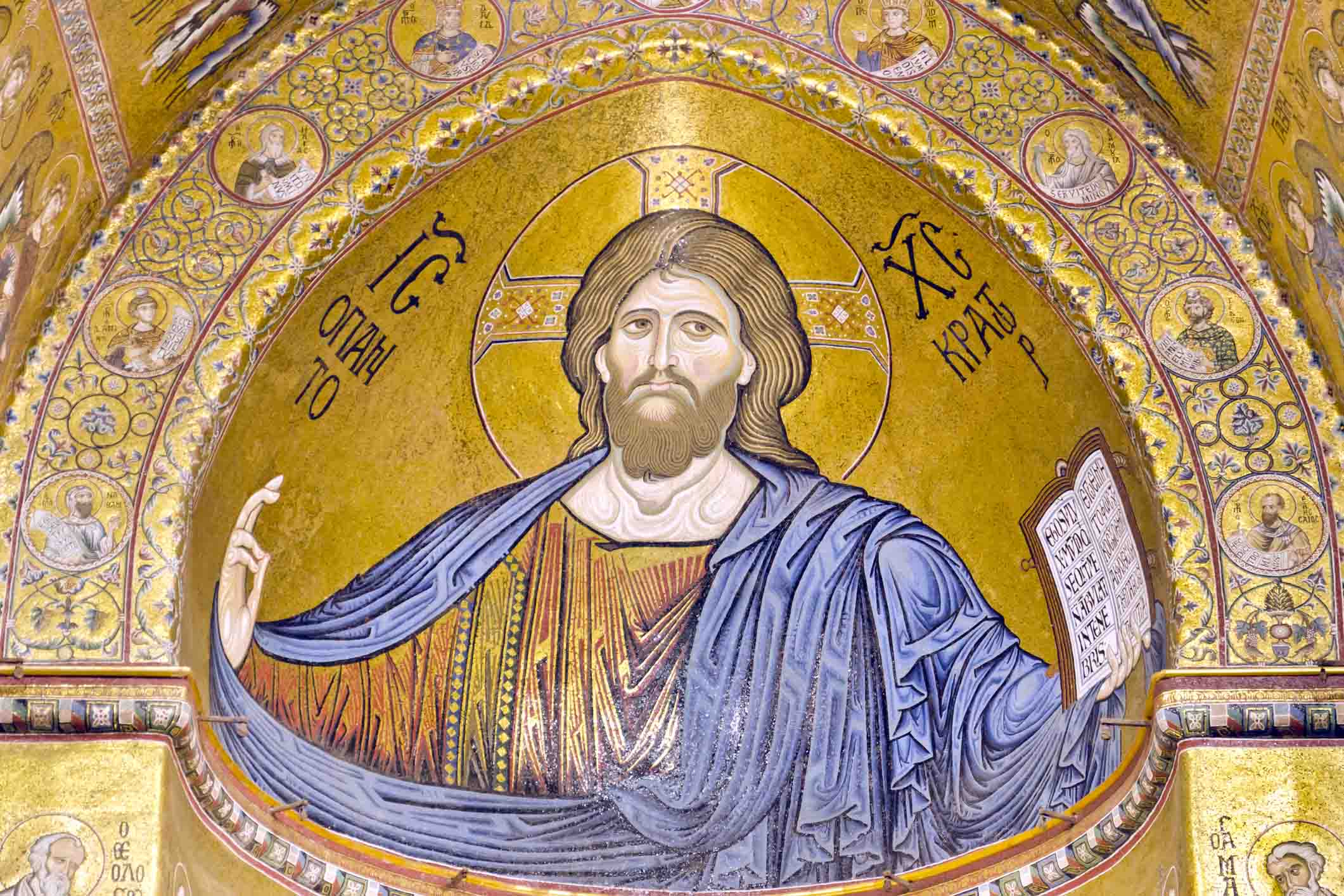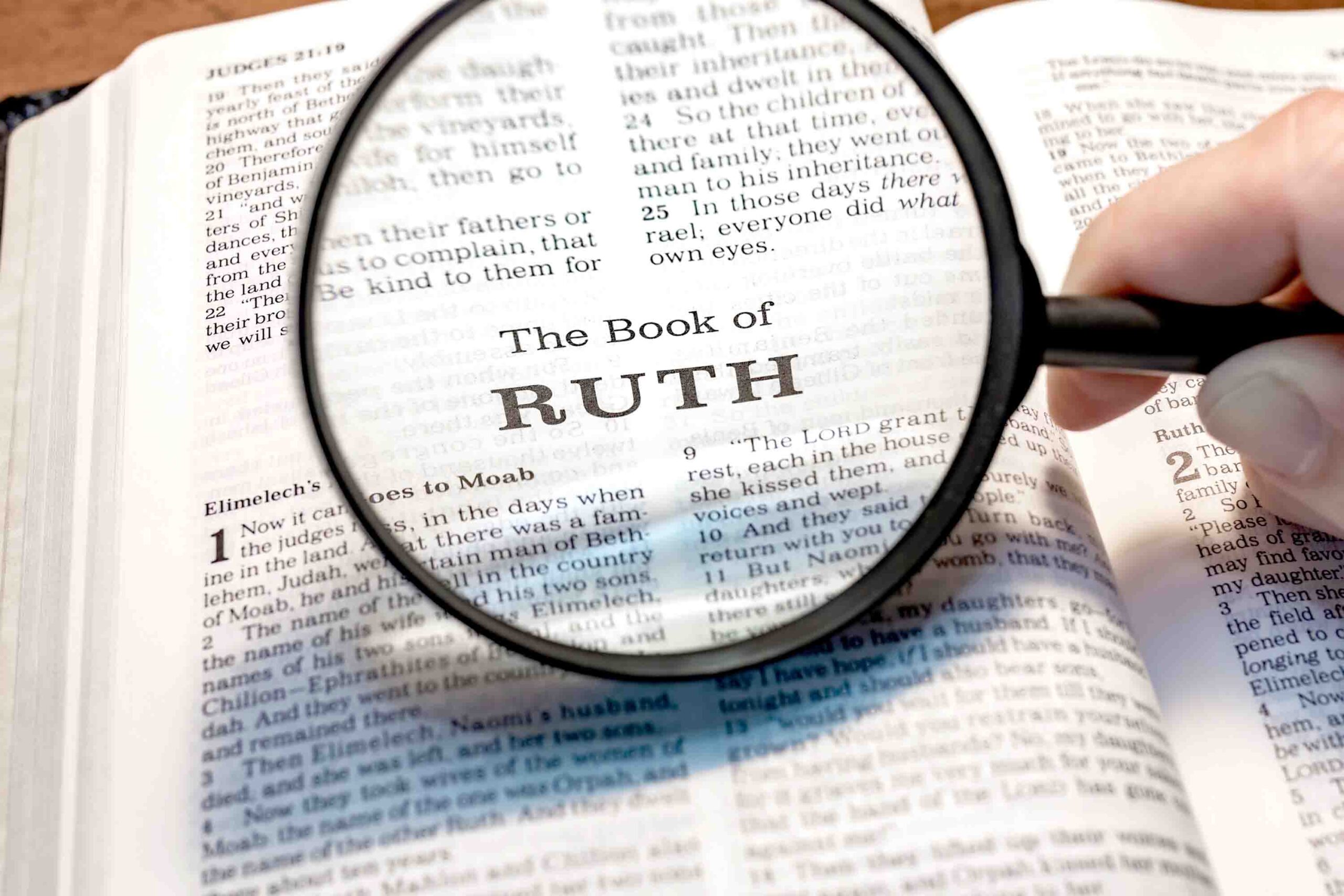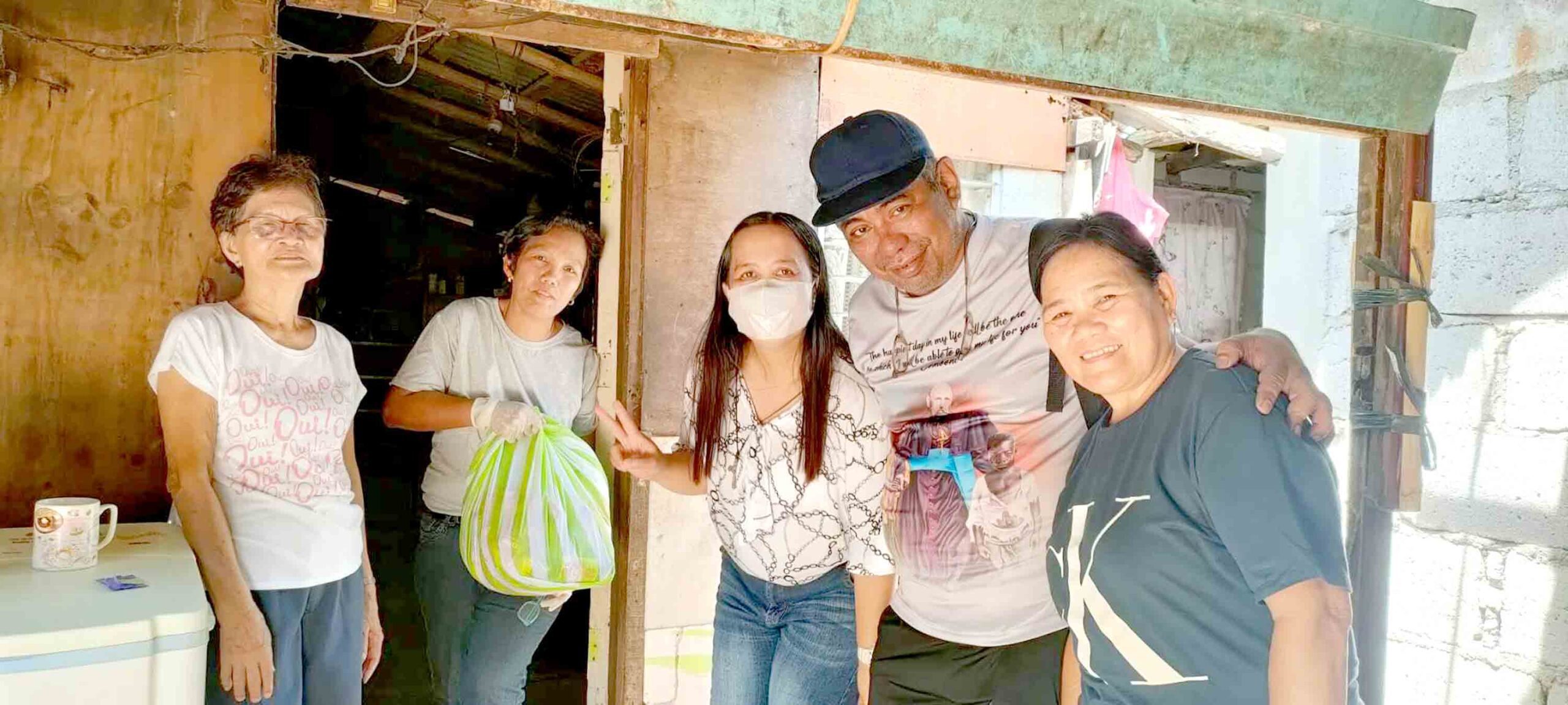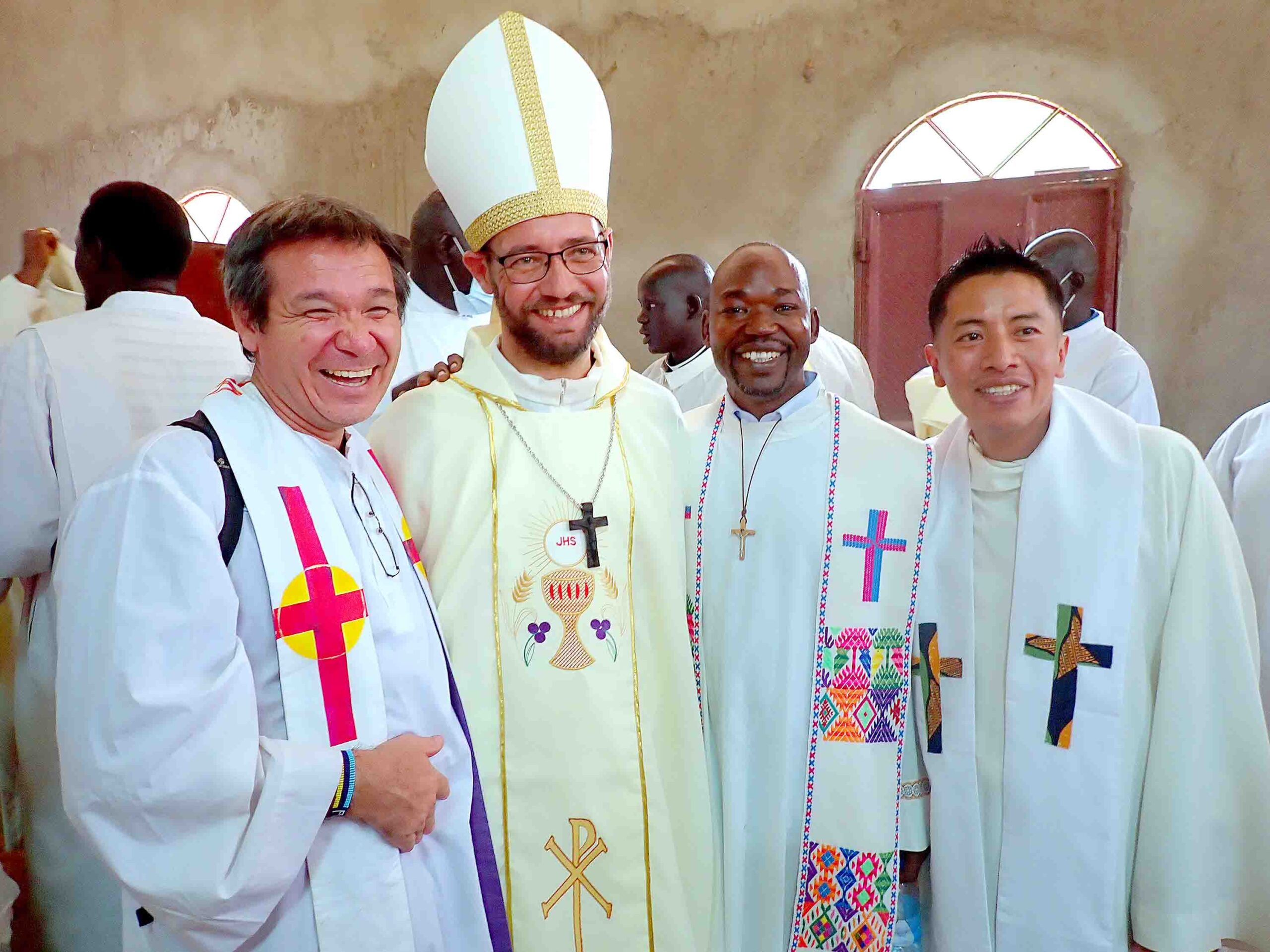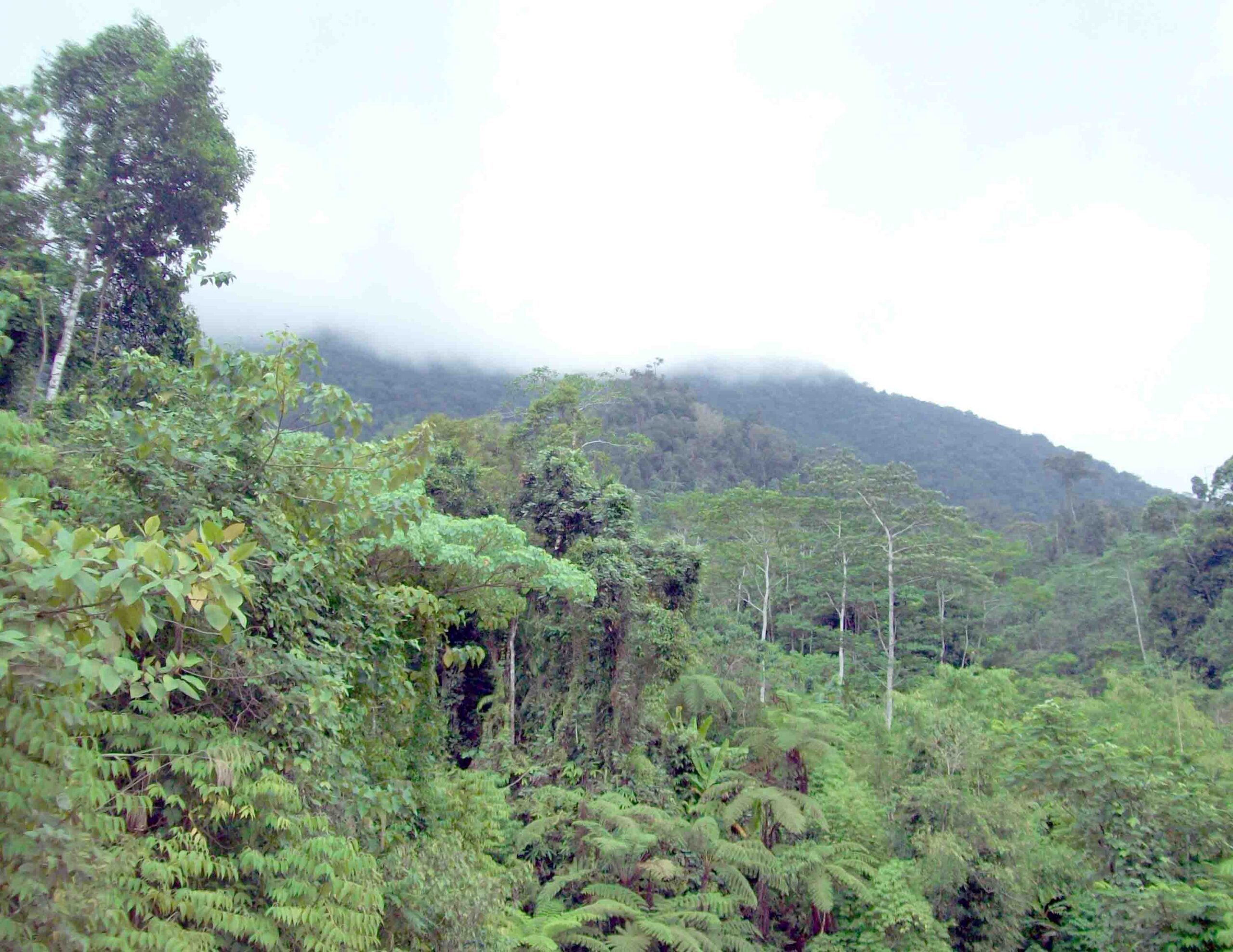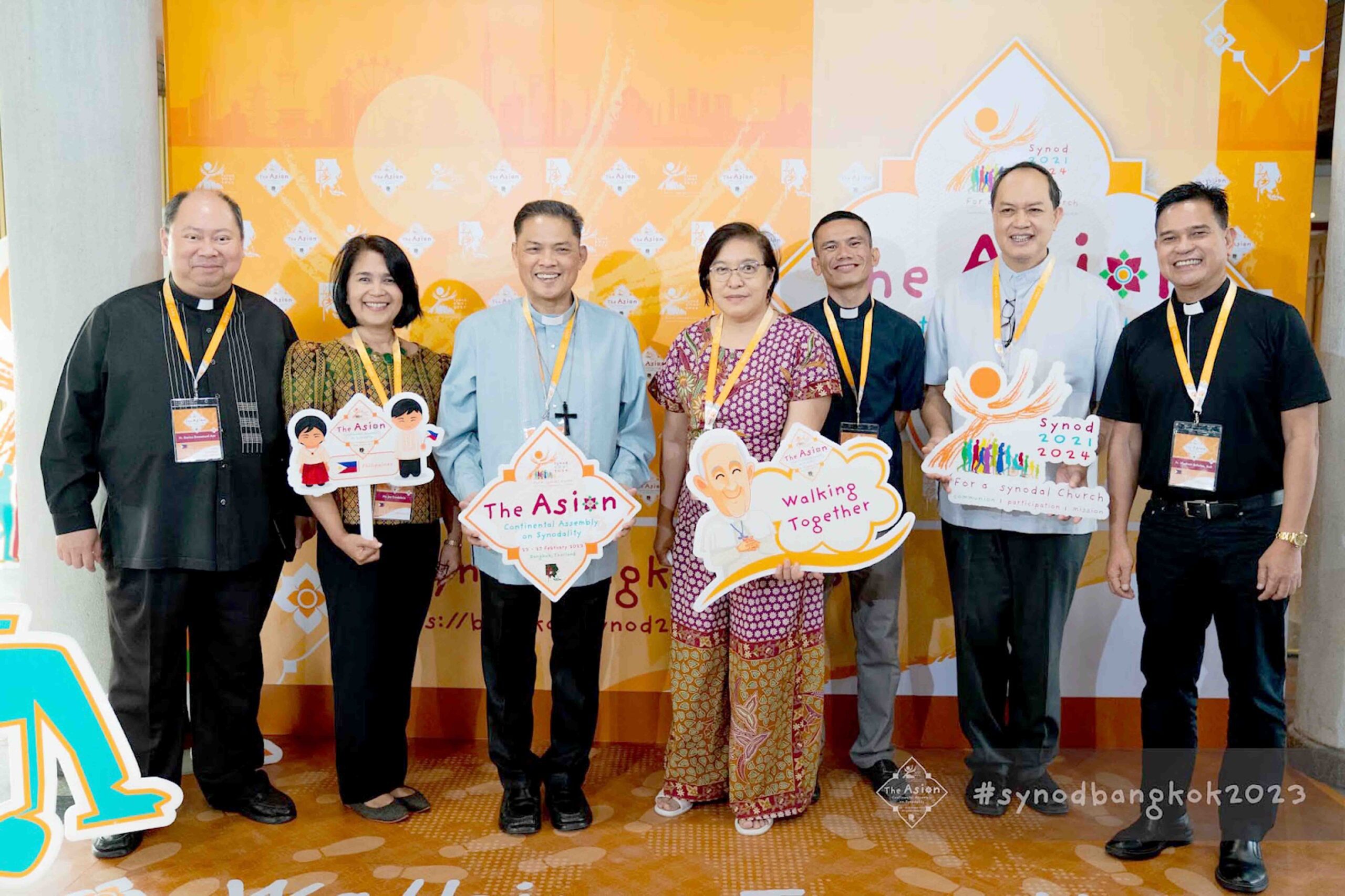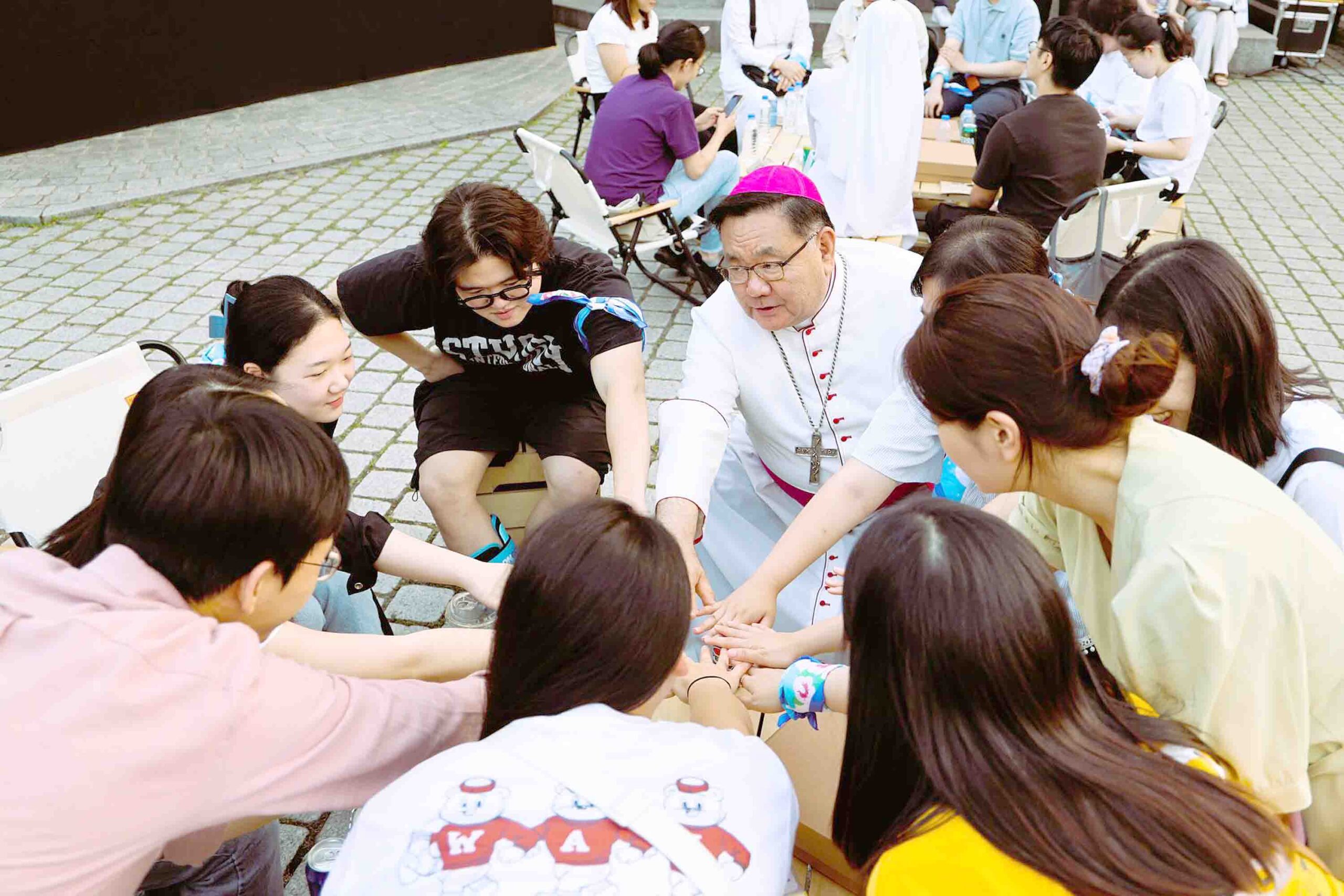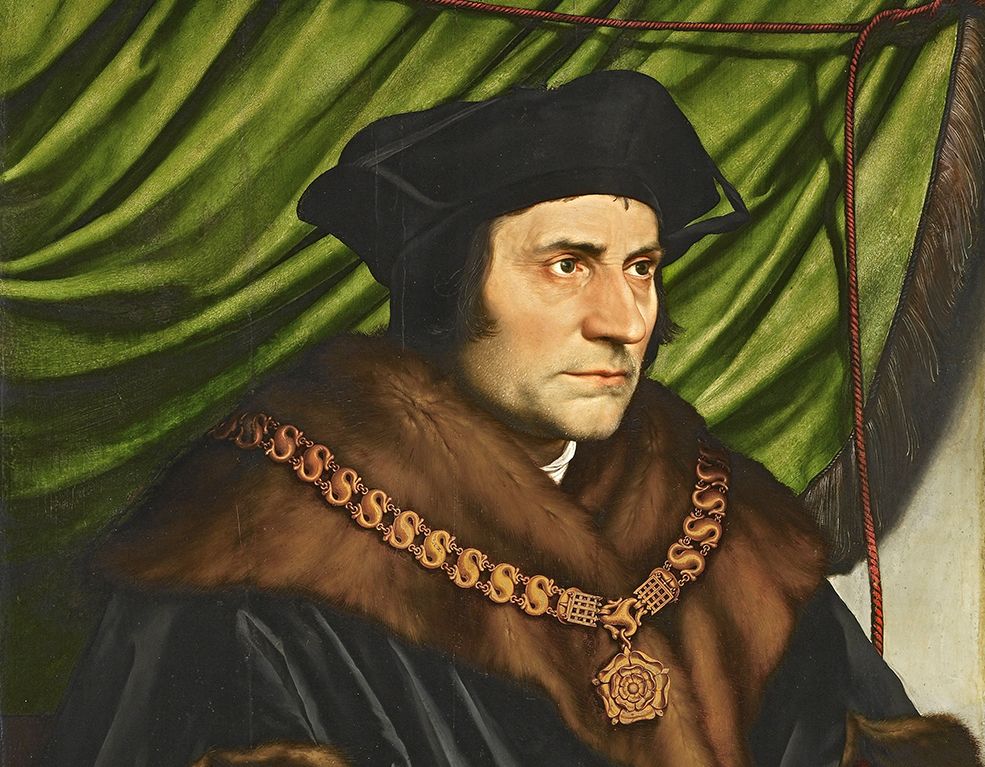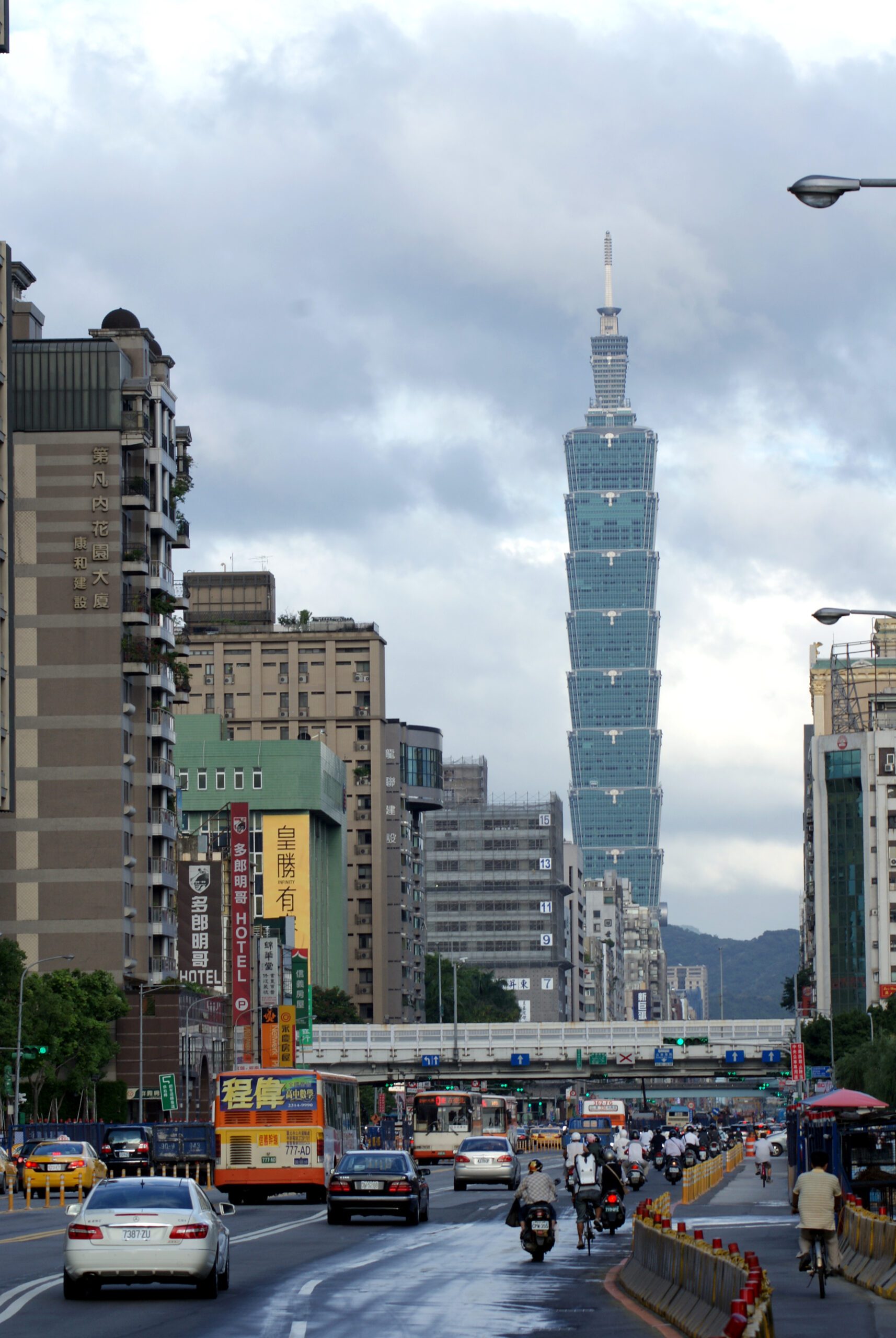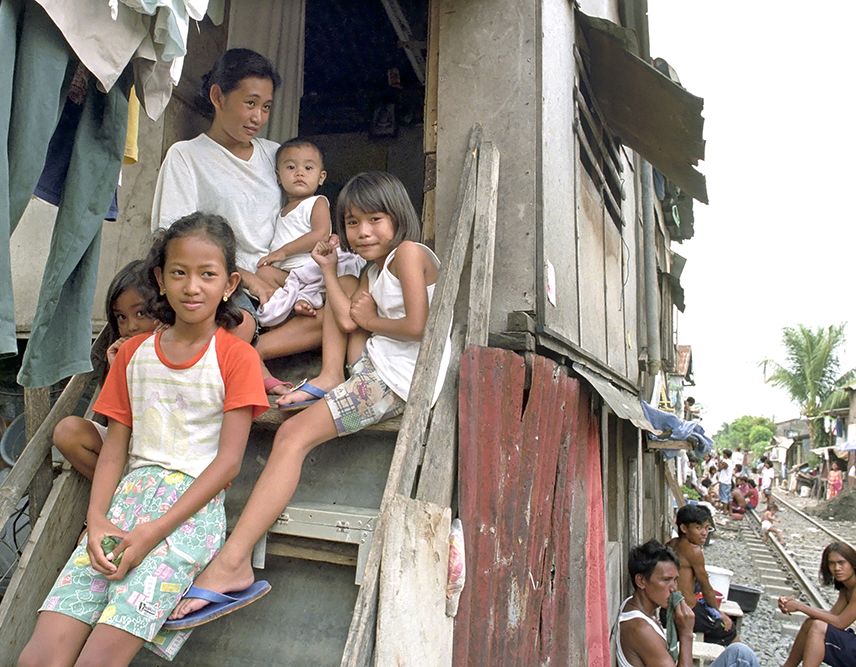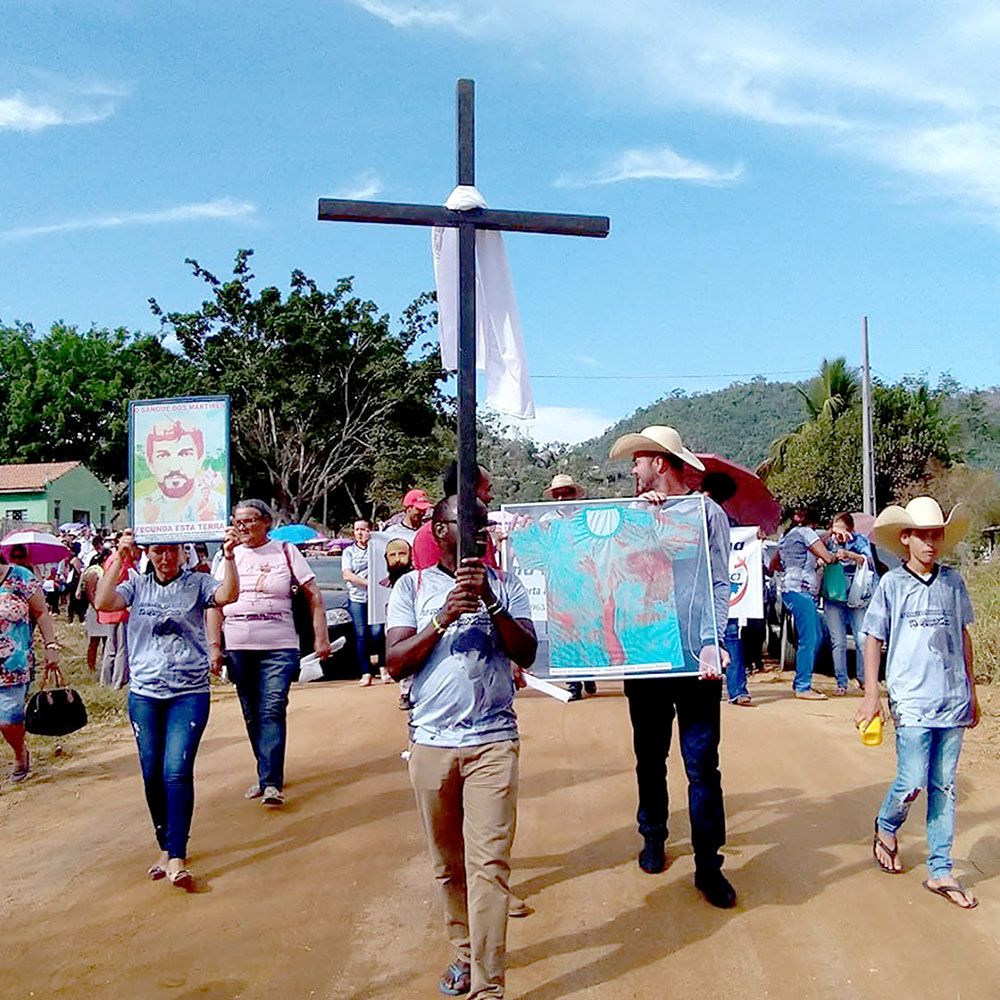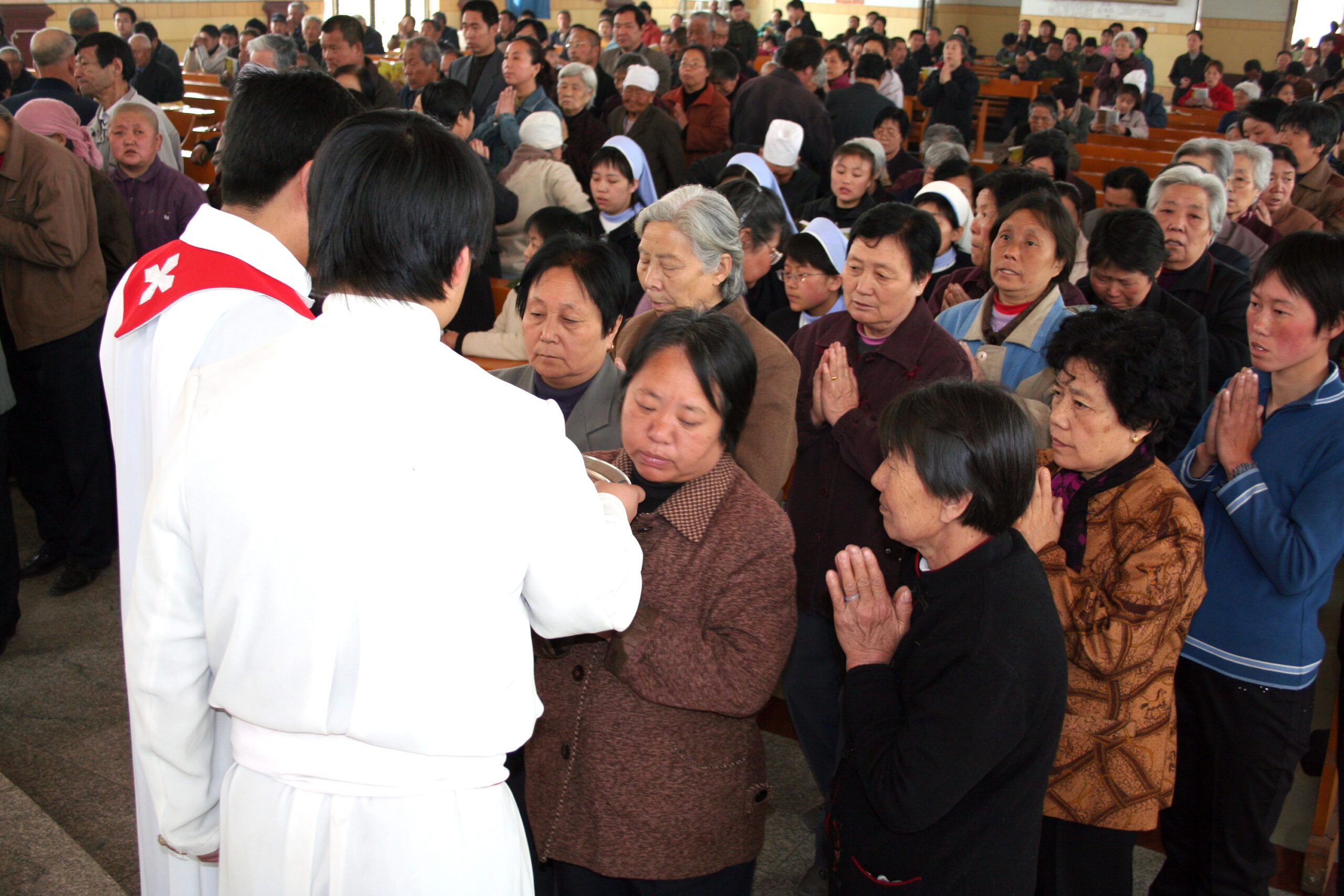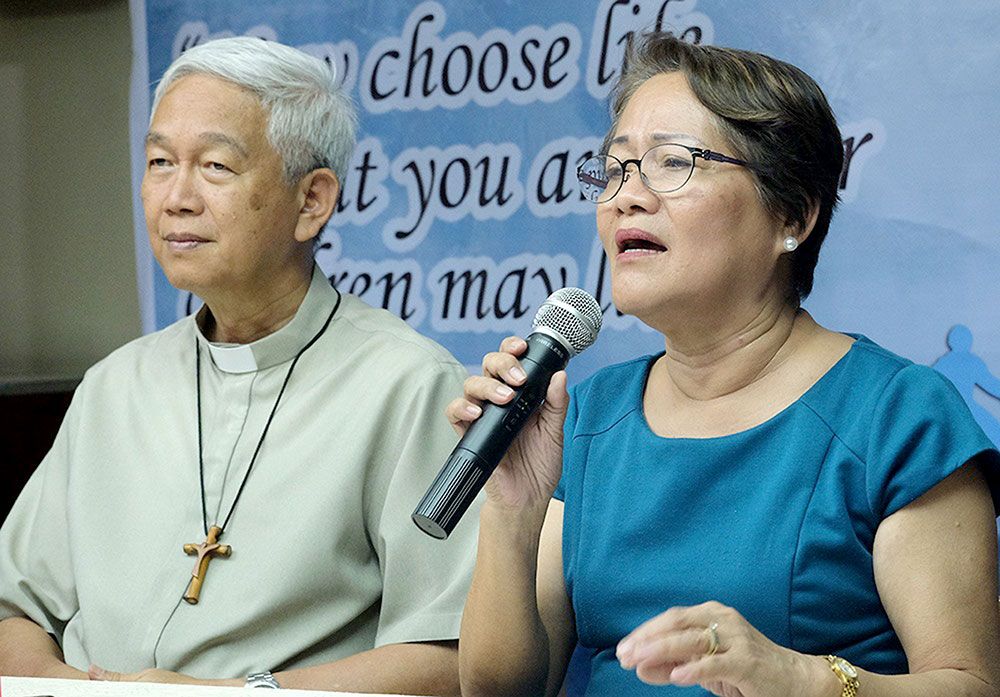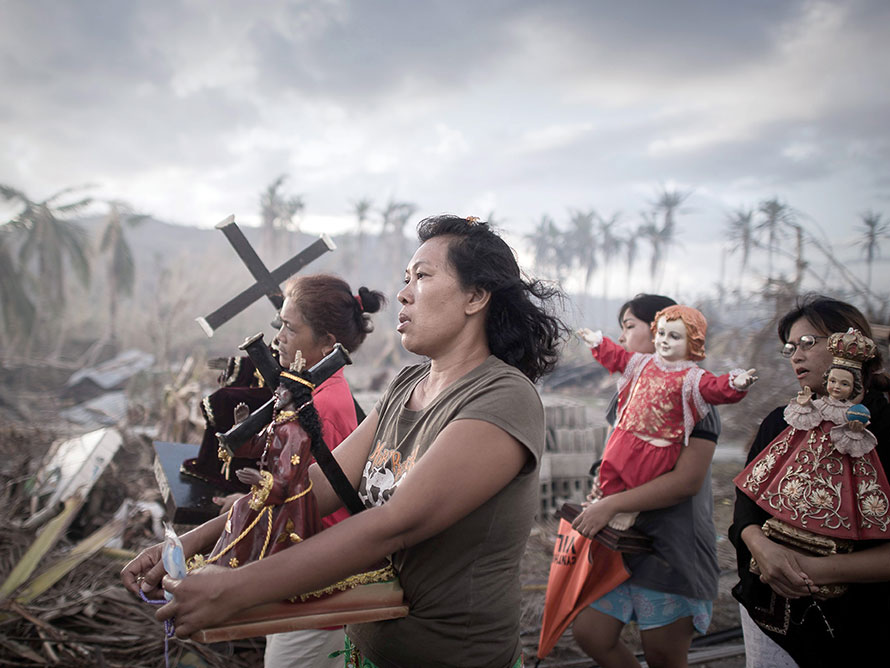QUESTION – One of the aims of creating this parish 25 years ago was precisely to look across the border, with the aim of evangelizing in China. Do you think that this vocation has been achieved and that the Macau diocese has succeeded in building a bridge to Catholics on the mainland?
ANSWER – In a way, yes! The COVID-19 pandemic ended up affecting this effort and since then we haven’t been able to relaunch this work of evangelization, particularly the work that was done from our parish. Two members of our congregation speak Mandarin and are in contact with people from mainland China. In the years before the pandemic, they were a kind of bridge between our parish and those people in China. At least two or three times a year, we were able to take members of our parish to the mainland, thanks to the contacts and connections of these Comboni missionaries, who visited China regularly. After the pandemic, we have been trying, in addition to the Mandarin Mass we celebrate every Saturday, to attract people from mainland China who have recently come to work in Macau or who have already settled there for some time.
QUESTION – The parish of St. Joseph the Worker was also the first to offer the celebration of the Eucharist in Mandarin
ANSWER – Yes, it was the first and, as far as I know, it’s still the only one. There were some attempts by other parishes for a while, but then they were abandoned. So, at the moment, it’s the only parish that offers the Eucharist in Mandarin.
QUESTION – In terms of pastoral service, what are the challenges facing the Comboni missionaries working in this parish? This is an area of the city where mainly less well-off families and many elderly people live. Are the parish and the Catholic Church an important presence for the people who live in this area of Iao Hon?
ANSWER – I believe so. Of course, we can’t say that we’ve achieved all the goals we set ourselves. It takes a lifetime to do that, but I believe that our presence has had a visible influence. You only have to look at the turnout at our celebrations, particularly at Mass in Cantonese. Many families make a point of attending the Eucharist. Fathers, mothers, children, grandparents, we always see people taking part as a family. We also try to help some people in need, but a lot of what we do is through a group that specializes in providing this kind of service. This group comes into contact in particular with elderly people who live alone and with some others who have special needs. The help we are trying to give them is to enable them to take advantage of the benefits offered by the Macau government.
QUESTION – How many people does the parish help with this effort? Do you have an idea?
ANSWER – At the moment, eight families. There have been more in the past, but the number is falling, precisely because of the support and benefits offered by the government. We keep a close eye on whether there are more people who need support and when there are, we offer them help. At the moment, we’re helping eight families.
QUESTION – There’s also catechesis. How many children are enrolled this year?
ANSWER – We currently have 83 children in catechesis.
QUESTION – Has the number been growing? Or not so much?
ANSWER – Yes. The number of children in catechesis continues to grow. Every year, to some extent, we have to reject some candidates because we don’t have room. Actually, it’s not just space, but also a lack of catechists. For now, that’s the number we can manage: we have between 80 and 85 children. The number continues to increase, but given our limitations we have to impose some limits.
QUESTION – You said that when the Church of St. Joseph the Worker was built, the Diocese handed it over to the Comboni Congregation. Is the work you do in the parish the most important aspect of the Comboni missionaries’ presence in Macau?
ANSWER – In the diocese of Macau, yes! But our presence in Macau, in this parish, as I mentioned earlier, also helps us in our mission to reach Catholics in mainland China. As I was saying, there are currently four members of our community and two of them are more involved in the work of the parish and the other two work mainly with mainland Catholics. All four of them live here, in the parish, and end up also carrying out work of a parish nature. As I told you, the two who speak Mandarin help us with Mass in Mandarin. They are always involved, even though they have closer ties with the Mandarin-speaking Catholic community and other groups.
Sometimes, when they come across people who are interested in being prepared for the catechumenate, they teach them in Mandarin so that they can eventually be baptized. Normally, every year we have at least one Mandarin speaker who receives the Sacraments of Initiation. In addition to their work in mainland China, they also prepare candidates for the catechumenate.
QUESTION – So we can conclude that the decision taken by the diocese of Macau 25 years ago to build a Church in this part of the city is now more than justified.
ANSWER – I believe so. I think that our presence here, particularly for us Comboni missionaries, has great significance. We have seen a great growth, not only in terms of numbers, but also in those who claim to be convinced Catholics. In one of the last meetings I had with some of the members of our community, I came across what came as a great surprise to me, not least because it was something they had brought up for discussion. There had been some speculation among us priests in the past, but I didn’t expect them to be the ones to put this question on the table. And what question is that? At one point, someone brought up “Zone A,” which is being built, and it was the members and leaders of the group themselves who made a point of saying: “Zone A is for our parish. We have to go there on mission.” As I was saying, it came as a surprise to me that this concern was addressed by them. Among the Comboni missionaries, we had already discussed this possibility, although we don’t know for sure which parish it will belong to or whether or not the Bishop will be able to entrust this new zone to the parish. But it has a whole other meaning to hear people express this desire for service, this desire for mission. Personally, it seems to me that this is nothing more and nothing less than the fruit of our presence here, of instilling in people this missionary spirit and this identity as Catholics, as people of God. It’s very nice to hear this kind of thing from people.
QUESTION – The decision, as you said, has not yet been taken by the diocese, but for you and the Comboni mission, would it be a good challenge to see the parish grow?
ANSWER – It would obviously be a challenge, but having come across this reaction, having taken the initiative of the people themselves, I believe I can count on them to bring this mission to a successful conclusion. It’s not a job we’re going to do alone. I know that we can count on them and on their help and, as such, I believe that this extension is something that is feasible. In the beginning, when we arrived here more than 25 years ago, the Church hadn’t been built yet; we started by working in a store in that area of the Pastoral Center. The community has been growing slowly but surely ever since. That our parishioners are willing to do the same in “Zone A,” if the diocese decides to entrust that area to our care, is a grace in itself. It’s a grace that the initiative came from the people, that they made themselves available for this plan and this mission. On our part, on the part of the Comboni missionaries, it may be necessary to invest a little more in terms of human resources, but at the same time it’s good to know that we can count on people. They are available to help and that is a great advantage for us. Published by Marco Carvalho in O Clarim

